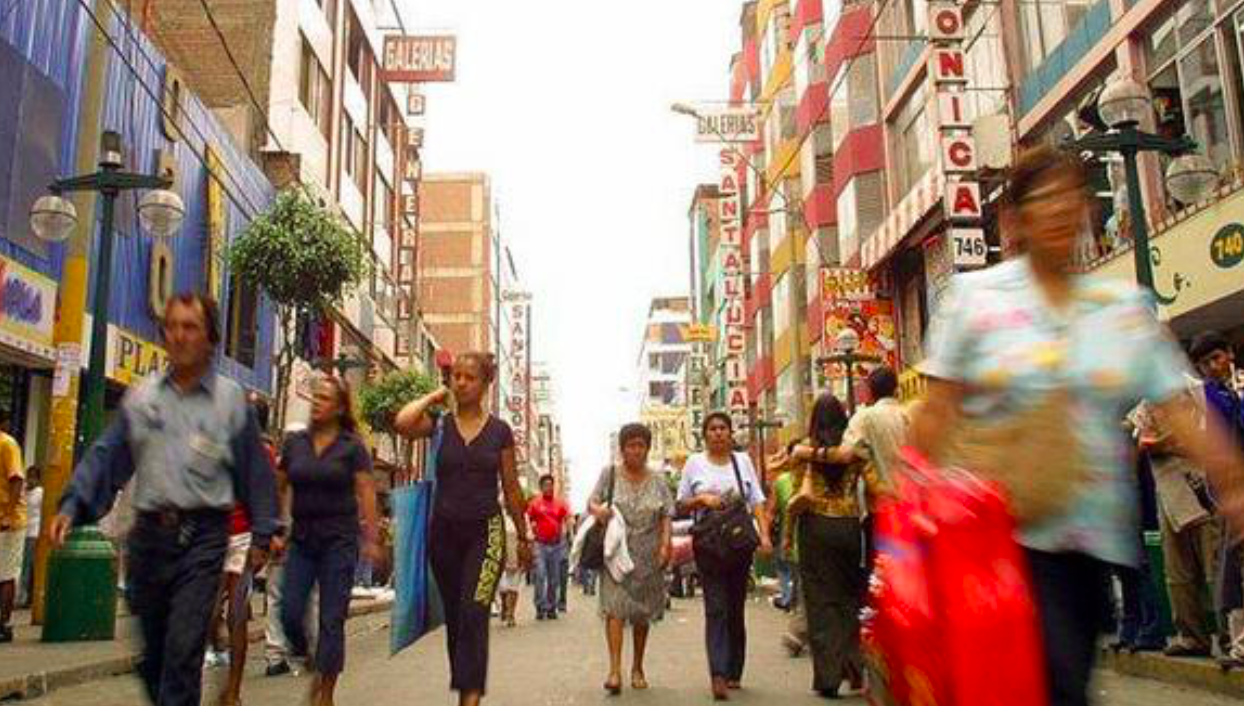RIO DE JANEIRO, BRAZIL – More Peruvians have the impression that the country’s development and economy are regressing instead of advancing.
According to a survey by Ipsos Peru for Apoyo Consultoría, 67% of those interviewed have the perception that the country is not advancing, being the highest figure in the last 31 years. This means that two out of every three Peruvians have the feeling that they are not heading in the right direction.
Read also: Check out our coverage on Peru
In addition, only 3% of people consider that Peru is making progress, a percentage that has reached an all-time low, according to the study.

For Fernando Huamán, professor of Public Opinion at the University of Piura, the results point to a lack of confidence in the country in the management of President Pedro Castillo, based on a lack of leadership with indicators of progress.
“Confidence is not achieved without leadership and leadership is not achieved only with speeches, but there have to be indicators in management,” he said.
Added to this is a feeling that there is no path forward for the country, added former Economy Minister Luis Miguel Castilla. He noted that, despite the fact that there is a context of high prices for raw materials that Peru exports, the growth rate would be lower.
“Never in the recent history of Peru have we had such a bad first year at the presidential level. […] For the first time in many years that in a positive international environment for the country, in relation to the prices of the raw materials that we export, we have a growth rate that is increasingly lower. We have never had this historical peak [in prices] and at the same time lower economic growth,” he maintained.
This trend of less progress and greater setbacks in the country has increased since 2017. José Carlos Requena, political analyst and partner at the Público consultancy, indicated that there is a shared responsibility, due to the polarization generated in the relationship between the Government and Congress since 2016.
“Hopefully we are aware that we are in an absolutely extreme situation and that we find solutions that take more of a long-term view and not a temporary solution that the crisis may require,” he told El Comercio.
EXPECTATIONS
The report also shows that since December the number of Peruvians who have pessimistic expectations regarding the future economic situation of the country has increased, since in June it was at 52%. In addition, 43% of the population estimates that their economic situation will worsen in the next 12 months.
In this regard, José Carlos Saavedra, partner and principal economist of Apoyo Consultoría, commented that this exceptional context is a reflection of the lack of direction, leadership or agenda in the country, which can give rise to a political environment that can be favorable for radicalism and populism, and generate consumption and investment limitations for people, in turn affecting economic growth and employment.
“Most now no longer expect improvements. This reflects that they see a country without direction, without leadership and the government without an agenda. This is worrying, as it can give rise to a more favorable political environment for radicalism and populism. And in the economic realm, this can limit the consumption and investment decisions of the population, which in turn could put a low ceiling on the pace of economic and employment growth,” he noted.
For his part, Víctor Fuentes, economist and head of the Peruvian Institute of Economy (IPE), maintained that the trend in the increase in the perception of setback, as well as in future expectations, has not yet reached a ceiling, but would continue to rise.
Likewise, he pointed out that this impression of society shown in the survey is consistent with business expectations that “accumulate 14 months in pessimistic terrain.”
Given this, he pointed out that leadership is needed in the Government to bet on sustainable measures over time, such as the generation of adequate employment.
“There is a lack of leadership in the Government to bet on measures that are sustainable over time. There is no better social policy than generating adequate employment. Employment is strongly affected. The spending capacity of households is S / 250 below pre-pandemic levels, […] it is approximately 15% below for households in Metropolitan Lima,” he said.

